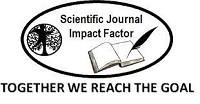Implementing the e-Kinerja System at the Department of Public Works and Spatial Planning, Cirebon Regency, Indonesia
DOI:
https://doi.org/10.56225/jmsc.v1i1.126Keywords:
policy implementation, e-kinerja system, work performanceAbstract
Implementing the e-Kinerja system at the Cirebon Regency Public Works and Spatial Planning Service did not run smoothly and optimally. Several obstacles occurred during the implementation of the e-Kinerja policy. Constraints arise, such as not all employees can use electronic systems, and some employees stutter about technology due to age factors. In addition, it isn't easy to adapt to new things based on electronics. Of these, the current investigation seeks to study the implementation of the e-Kinerja system to improve employee performance. The research method used is a qualitative approach with a descriptive analysis method. The theory of policy implementation used in this research is George Edward III. The study results concluded that implementing the e-Kinerja system at the Cirebon Regency Public Works and Spatial Planning Service did not make all run optimally. Therefore, judging from George Edward III's policy implementation model, which consists of communication, resources, the attitude of implementers, and bureaucratic structure, the communication factor needs to be socialized among employees. The obstacles faced in implementing the e-Kinerja system to improve employees' work performance at the Cirebon Regency Public Works and Spatial Planning Service are the limited capacity of human resources and the lack of professionalism of employees. The efforts to overcome these obstacles are educating and training employees and coaching employees to improve professionalism.
References
Agustino, L. (2016). Dasar-dasar kebijakan publik (Edisi Revisi). Bandung: Alfabeta.
Al-Raisi, A. A. N. (2011). E-performance assessment system in governmental organizations in the United Arab Emirates (pp. 1–244). Coventry University.
Aritonang, E. A., Sari, E. N., & Astuty, W. (2021). Pengaruh Ketidakpastian Lingkungan dan Komitmen Organisasi terhadap Kinerja Manajerial dengan Kualitas Sistem Informasi Akuntansi Manajemen sebagai Variable Intervening pada PT. Perkebunan Nusantara IV Medan. Nusantara: Jurnal Ilmu Pengetahuan Sosial, 8(6), 1763–1779.
Bhastary, M. D. (2020). Pengaruh Etika Kerja dan Stres Kerja terhadap Kepuasan Kerja Karyawan. Maneggio: Jurnal Ilmiah Magister Manajemen, 3(2), 160–170.
Brubacher, J. S., & Rudy, W. (2017). Higher Education in Transition. Routledge. https://doi.org/10.4324/9780203790076
Dwiyanto, A. (2022). Teori Administrasi Publik dan Penerapannya di Indonesia. Universitas Gadjah Mada Press.
Edwards III, G. C., Mayer, K. R., & Wayne, S. J. (2022). Presidential leadership: Politics and policy making. Rowman & Littlefield.
Ermawati, E., & Aswar, K. (2020). Assessing Regional Finance Independence in Indonesian Local Governments. European Journal of Business and Management Research, 5(1), 1–5. https://doi.org/10.24018/ejbmr.2020.5.1.178
Hartono, J., Suwardi, E., Miharjo, S., & Hartadi, B. (2016). Does auditor rotation increase auditor independence? Gadjah Mada International Journal of Business, 18(3), 315–337.
Henriyani, E. (2019). Problematika Dalam Implementasi Kebijakan Publik. Moderat: Jurnal Ilmiah Ilmu Pemerintahan, 1(4), 657–666.
Nugroho, R. (2011). Public private partnership as a policy dilemma. International Journal of Administrative Science & Organization, 18(3), 178–188.
Pasaribu, S., Harahap, R. H., & Mardiana, S. (2020). Implementasi Peraturan Pemerintah Nomor 46 Tahun 2011 Tentang Penilaian Prestasi Kerja Pegawai Negeri Sipil. Strukturasi: Jurnal Ilmiah Magister Administrasi Publik, 2(1), 70–78. https://doi.org/10.31289/strukturasi.v2i1.62
Pasolong, H. (2011). Teori Administrasi Publik (10th ed.). CV. Alfabeta.
Rachmadhany, P. S. (2011). Pengaruh Motivasi Kerja, Disiplin Kerja dan Kepemimpinan Terhadap Produktivitas Kerja Karyawan Bagian Non Medis di Rumah Sakit Cakra Husada Klaten. Universitas Muhammadiyah Surakarta.
Romney, M. B. (2015). Sistem Informasi Akuntansi (13th ed.). Salemba Empat.
Silaban, R. L., Handaru, A. W., & Saptono, A. (2021). Effect of Workload, Competency, and Career Development on Employee Performance with Organizational Commitment Intervening Variables. The International Journal of Social Sciences World, 3(1), 294–311. https://doi.org/10.5281/zenodo.5091470
Sirait, A. I. (2019). Penilaian Kinerja Pegawai Melalui Penerapan Sistem E-Kinerja Di Badan Kepegawaian Negara Kota Banda Aceh (pp. 1–70). Universitas Muhammadiyah Sumatera Utara.
Suaedi, F., & Wardiyanto, B. (2010). Revitalisasi Administrasi Negara : Reformasi Birokrasi dan e-Governance. Graha Ilmu.
Susila Wibawa, K. C. (2019). Urgensi Keterbukaan Informasi dalam Pelayanan Publik sebagai Upaya Mewujudkan Tata Kelola Pemerintahan yang Baik. Administrative Law and Governance Journal, 2(2), 218–234. https://doi.org/10.14710/alj.v2i2.218-234
Tahir, H. (2021). Penerapan E-Kinerja Dalam Menilai Kinerja Aparatur Sipil Negara (ASN) Pada Kantor Dinas Perumahan Kawasan Permukiman Dan Pertanahan Provinsi Sulawesi Selatan (pp. 1–73). Program Studi Manajemen Fakultas Ekonomi Dan Bisnis Universitas Muhammadiyah Makassar.
Wibawa, S. (2009). Public Administration Contemporary Issues. Yogyakarta, Graha Ilmu.
Winarno, B. (2012). Kebijakan publik: teori, proses, dan studi kasus: edisi dan revisi terbaru. Center for Academic Publishing Service.
Downloads
Published
How to Cite
Issue
Section
License
Copyright (c) 2022 Authors

This work is licensed under a Creative Commons Attribution 4.0 International License.
Copyright @2022. This is an open-access article distributed under the terms of the Creative Commons Attribution 4.0 International License (https://creativecommons.org/licenses/by/4.0/) which permits unrestricted to copy and redistribute the material in any medium or format, remix, transform, and build upon the material for any purpose, even commercially.

This work is licensed under a Creative Commons Attribution 4.0 International License.
















